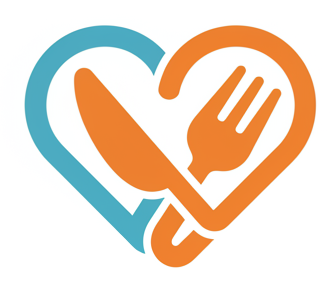Carbohydrates play a big role in our health. Knowing the different types is key to a good diet. They can greatly affect our health, so it’s important to understand them.
Carbs are essential for our daily nutrition. Their impact on our body changes based on the type. Knowing this helps us manage our energy, weight, and health.

The world of carbs can seem complex. But, knowing the basics helps us make better food choices. The carbs we eat greatly impact our health. It’s vital to learn about them for a healthy lifestyle.
Key Takeaways
- Carbohydrates have a significant impact on health
- Understanding the different types of carbohydrates is crucial for making informed decisions about our diets
- The types of carbohydrates we eat can affect our energy levels, weight, and overall well-being
- Learning about the different types of carbohydrates can help us make better choices about the foods we eat
- A healthy lifestyle can be maintained by understanding the basics of carbohydrates and their impact on health
- The carbohydrates impact on health can be substantial, and it’s essential to learn about the various types of carbohydrates
Understanding Carbohydrates: The Basics
Carbohydrates are key to a healthy diet, giving the body energy and helping with many functions. They play a big role in weight loss, especially when it comes to feeling full. Knowing how carbs affect hunger and fullness is important.
Carbs help the body make energy. They break down into glucose, which powers cells. Carbohydrates include sugars, starches, and fibers. It’s important to know the different types to make good food choices.
What Are Carbohydrates?
Carbohydrates are made of carbon, hydrogen, and oxygen. You can find them in fruits, veggies, grains, and legumes. They’re often talked about in diet plans, especially when trying to lose weight.
The Role of Carbs in Your Body
Carbs are essential for energy and support many body functions. They help keep blood sugar levels healthy and aid in tissue growth and repair. It’s important to know how carbs affect health and weight loss.
Different Types of Carbohydrates Explained
Carbohydrates come in simple and complex types. Simple carbs, like sugars, are quickly digested and raise blood sugar fast. Complex carbs, like starches and fibers, digest slower and help you feel full, aiding in weight loss.
The Science Behind Carbohydrate Metabolism
Carbohydrate metabolism is key to our energy levels and health. When we eat carbs, they turn into glucose. This glucose then goes into our blood. The effects of carbs on blood sugar are big, causing a blood glucose spike followed by insulin.
Our body’s ability to handle carbs and energy levels depends on insulin sensitivity and glucose tolerance. People with high insulin sensitivity keep their blood sugar stable. Those with low sensitivity might see their energy levels swing.
Knowing how carbs impact blood sugar is vital for good health. By choosing the right carbs, we can manage our energy levels better. This also lowers the risk of long-term diseases.
| Carb Type | Effect on Blood Sugar |
|---|---|
| Simple Carbs | Rapid increase in blood sugar |
| Complex Carbs | Gradual increase in blood sugar |
Simple vs. Complex Carbohydrates: Breaking Down the Differences
Knowing the difference between simple and complex carbs is key for your health. Simple carbs, found in sugary drinks and snacks, can raise blood sugar quickly. Complex carbs, like whole grains and fruits, are better because they’re full of fiber and nutrients.
Adding healthy carbs to your diet can greatly improve your health. Complex carbs, in particular, help with digestion and make you feel full. Here are some examples:
- Whole grains, such as brown rice and quinoa
- Fruits, like apples and berries
- Legumes, including lentils and chickpeas
Choosing the right carbs is vital for your metabolic health. Opting for complex carbs helps control blood sugar and supports health. Focus on whole foods and avoid sugary drinks and refined snacks.
Understanding carbs can help you make better diet choices. A balanced diet with various healthy carbs is essential for good health and wellness.
How Carbohydrates Impact Your Energy Levels
Carbohydrates are key for giving the body energy. The types of carbohydrates you eat affect your energy. Simple carbs, like those in sugary snacks, quickly boost energy but then drop it.
Complex carbs, like whole grains and fruits, give energy for longer. This is because they release energy slowly.
The carbohydrates impact on health changes based on when you eat them. Eating carbs before working out gives energy. After working out, they help recover.
Knowing the types of carbohydrates and their energy effects is crucial. This helps you make better food choices.
- Whole grains, like brown rice and quinoa
- Fruits, like apples and bananas
- Vegetables, like broccoli and carrots
Eating these complex carbs helps manage your energy. It also supports your overall health.
The Truth About Carbs: Are They Friend or Foe in Weight Management?
Carbohydrates are often talked about in weight management. Many think that high vs low carb diets are the answer to losing weight. But, the link between carbs and weight loss is not that simple.
Studies show that the type and amount of carbs eaten matter a lot. For instance, strategic carb consumption can aid in weight loss. On the other hand, poor carb choices can cause weight gain.
- Focus on whole, unprocessed foods like fruits, vegetables, and whole grains
- Choose complex carbohydrates like brown rice, quinoa, and whole wheat bread
- Limit or avoid simple carbohydrates like sugary drinks, refined grains, and processed snacks
Making smart choices about carbs can help manage weight and improve health. It doesn’t matter if you’re on a high vs low carb diet. The main thing is to eat nutrient-rich, whole foods and watch your portion sizes.
Carbohydrates and Blood Sugar Balance
Carbohydrates are key in keeping blood sugar levels stable. They can affect how well our bodies use insulin and handle glucose. For people with diabetes or those managing their blood sugar, understanding the effects of carbs on blood sugar is vital.
The type of carb we eat matters a lot. Simple carbs, like those in sugary drinks and refined grains, quickly raise blood sugar. On the other hand, complex carbs, like whole grains and veggies, digest slower and affect blood sugar more gradually. Knowing how carbs and metabolic health interact helps keep our blood sugar in check.
When thinking about carbs and blood sugar, consider these points:
- The glycemic index of the carb, which shows how fast it raises blood sugar
- The carb’s fiber content, which slows down sugar digestion and absorption
- The carb’s overall quality, including nutrients and antioxidants

Choosing carbs high in fiber, nutrients, and antioxidants, and with a low glycemic index, helps keep blood sugar healthy. This supports carbs and metabolic health overall.
| Carbohydrate Type | Glycemic Index | Fiber Content |
|---|---|---|
| Whole Wheat Bread | 30-40 | 3-4 grams per slice |
| White Rice | 70-80 | 0.5-1 gram per cup |
| Quinoa | 35-45 | 5-6 grams per cup |
Smart Carb Sources for Optimal Health
Choosing the right carbs is key for good health. Foods like whole grains, fruits, and veggies are full of nutrients and fiber. They help keep carbs and energy in check. Eating a variety of whole foods supports your health and happiness.
Adding healthy carbs to your diet is easy. Try brown rice, quinoa, and whole wheat bread. They’re packed with fiber, vitamins, and minerals. They help with digestion and energy. Fruits and veggies are also great for carbs and can be added to meals and snacks.
Best Whole Food Carb Sources
- Whole grains, such as brown rice and quinoa
- Fruits, such as apples and bananas
- Vegetables, such as sweet potatoes and carrots
Remember to watch your carb intake. Too many carbs can make you feel tired and gain weight. By picking healthy carbs and controlling portions, you can keep your energy up and stay healthy.
Carbs to Limit or Avoid
Some carbs are better left out. Refined sugars and processed grains, like white bread and sugary snacks, raise blood sugar and energy. Then, they crash. These carbs can also cause weight gain and health issues.
The Role of Carbs in Athletic Performance
Athletes need lots of energy to do their best. Carbohydrates are key in giving them this energy. Different types of carbohydrates affect performance in different ways. For instance, complex carbs like whole grains and fruits give energy that lasts. Simple carbs, like sugars, give a quick energy boost.
For athletes, watching what carbs they eat is important. Too many carbs can cause weight gain, stomach problems, and lower performance. But, the right amount helps keep energy up, supports muscles, and boosts performance.

To perform well, athletes should eat a balanced diet with various types of carbohydrates. This includes:
- Whole grains, such as brown rice, quinoa, and whole-wheat bread
- Fruits, like bananas, berries, and citrus fruits
- Vegetables, including sweet potatoes, carrots, and broccoli
By knowing how carbs help in sports and making smart food choices, athletes can better their energy, performance, and goals.
Carb Cycling: A Modern Approach to Carbohydrate Consumption
Carb cycling is a diet that switches between high and low carb days. It helps with weight loss and better metabolic health. It’s popular among athletes and those looking to manage carbs better. Knowing the good and bad of carb cycling helps make better food choices.
Benefits include better insulin use, more fat loss, and better sports performance. But, there are downsides like missing nutrients and social issues. To do carb cycling right, eat whole foods and talk to a health expert or dietitian.
What is Carb Cycling?
Carb cycling changes carb intake to meet diet goals. It involves high, low, and moderate carb days. Listen to your body and adjust carbs as needed.
Benefits and Potential Drawbacks
The good things about carb cycling are:
- Improved insulin sensitivity
- More fat loss
- Better sports performance
But, there are also downsides:
- Nutrient deficiencies
- Social challenges
- Hard to keep up with the diet
How to Implement Carb Cycling
To start carb cycling, figure out your daily carb needs. Then, switch between high and low carb days with whole foods. Always check with a health expert or dietitian to make sure you’re getting enough nutrients. This way, you can enjoy the benefits of carb cycling and boost your metabolic health.
Understanding carbs and metabolic health helps make better food choices. This way, you can optimize your carb intake for better health.
| Carb Cycling Benefits | Description |
|---|---|
| Improved Insulin Sensitivity | Increased ability to regulate blood sugar levels |
| Increased Fat Loss | Enhanced ability to burn fat for energy |
| Enhanced Athletic Performance | Improved energy and endurance for physical activity |
Common Misconceptions About Carbohydrates
Many people think all carbohydrates are bad. They believe low carb diets are the only way to lose weight. But, carbs are crucial for a balanced diet, giving our bodies energy.
It’s not about cutting out all carbs to lose weight. It’s about choosing wisely. Eat whole foods like fruits, veggies, and whole grains. Avoid processed carbs. Knowing the difference between high vs low carb diets helps you make better choices. This way, you can lose weight and still enjoy carbs.
- The idea that all carbs are created equal
- The belief that low carb diets are the only way to achieve weight loss
- The notion that carbs are inherently bad for you
By knowing the truth about carbs, you can make better choices. This helps you reach your health and weight loss goals.
Conclusion: Finding Your Personal Carb Balance
Understandingcarbohydratescan be tricky, but it’s key to your health. Not allcarbohydratesare the same. Some give you lasting energy, while others can mess with your blood sugar and weight.
Finding the right balance ofcarbohydratesfor you is important. You might need to try different kinds and amounts. Listen to how your body reacts. Making smart choices aboutcarbohydratescan boost your energy and health.
There’s no single way to handlecarbohydrates. Keep learning and listen to your body. It will help you find the perfect carb balance for you.
Disclaimer: This article is for informational purposes only and does not constitute medical advice. Always consult a healthcare professional before starting a new exercise or wellness routine.
FAQ
What are carbohydrates, and what role do they play in the body?
Carbohydrates are a key nutrient that gives the body energy. They turn into glucose, which cells use to make ATP. This ATP is the body’s energy source. Carbs also help with brain and muscle functions, and digestion.
What are the different types of carbohydrates?
Carbohydrates are divided into simple and complex types. Simple carbs include sugars like glucose and fructose. Complex carbs are found in whole grains, legumes, and veggies. Each type affects the body differently.
How do high-carb and low-carb diets affect weight loss?
Both high-carb and low-carb diets can help with weight loss. It depends on the person’s goals and what they prefer. Low-carb diets might work faster, but high-carb diets can also be effective if calorie intake is controlled. Choosing whole, nutrient-rich carbs is key.
How do carbohydrates impact energy levels and blood sugar?
Carbs are the body’s main energy source, offering a quick energy boost. But, the carb type affects energy and blood sugar. Simple carbs can quickly raise blood sugar, then drop it. Complex carbs give energy longer and keep blood sugar stable.
What are the benefits of complex carbohydrates, and how do they differ from simple carbohydrates?
Complex carbs, like whole grains and veggies, are healthier than simple carbs. They’re higher in fiber, vitamins, and minerals. They’re also digested slower, helping to control blood sugar and provide lasting energy. Simple carbs, like added sugars, are often higher in calories and can cause blood sugar spikes.
What is carb cycling, and how can it benefit health and weight management?
Carb cycling alternates between high-carb and low-carb days. It helps keep the metabolism flexible, supports weight loss, and boosts health. This method helps the body use carbs and fats efficiently, improving body composition and energy levels.
What are some common misconceptions about carbohydrates?
Some myths say all carbs are bad, low-carb diets are the only way to lose weight, and carbs cause weight gain. But, carbs are essential, and it’s the type and amount that matters, not avoiding them completely.






